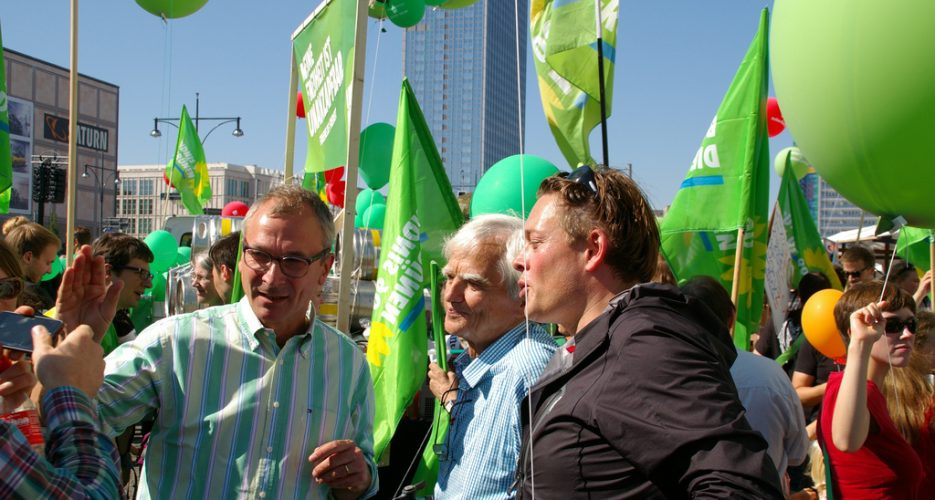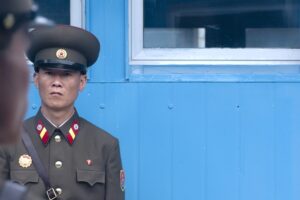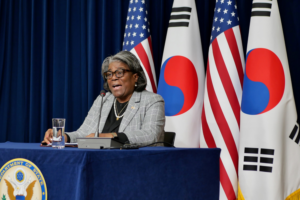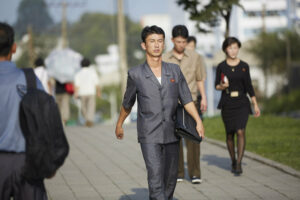Travelers to North Korea routinely praise the clean streets of Pyongyang and the lack of pollution compared to its neighbor, China. While North Korea today suffers from its own environmental issues, Kim Il Sung once tried to capitalize on the DPRK’s apparent status as an untapped green space that had not been tainted by capitalist-fueled pollution. This soft power tactic used by the North Korean leadership in the 1980s resulted in an odd relationship with several members of the German Green Party.
As South Korea’s economy took off in the 1980s, it became clearer that the real “Korean Miracle” was centered in Seoul. Dealing with the harsh reality that the DPRK’s soft power abroad was slipping due to the South’s economic boom, the North Korean leadership searched for new allies and found one in Luise Rinser, a leading member of the German Green Party and a notable author who once wrote of her experiences in a Nazi prison. From 1980 to 1992, Rinser visited North Korea 11 times and met with Kim Il Sung 45 times.
Travelers to North Korea routinely praise the clean streets of Pyongyang and the lack of pollution compared to its neighbor, China. While North Korea today suffers from its own environmental issues, Kim Il Sung once tried to capitalize on the DPRK’s apparent status as an untapped green space that had not been tainted by capitalist-fueled pollution. This soft power tactic used by the North Korean leadership in the 1980s resulted in an odd relationship with several members of the German Green Party.
As South Korea’s economy took off in the 1980s, it became clearer that the real “Korean Miracle” was centered in Seoul. Dealing with the harsh reality that the DPRK’s soft power abroad was slipping due to the South’s economic boom, the North Korean leadership searched for new allies and found one in Luise Rinser, a leading member of the German Green Party and a notable author who once wrote of her experiences in a Nazi prison. From 1980 to 1992, Rinser visited North Korea 11 times and met with Kim Il Sung 45 times.
Become a member for less than $4 per week.
Unlimited access to all of NK News: reporting, investigations, analysis
The NK News Daily Update, an email newsletter to keep you in the loop
Searchable archive of all content, photo galleries, special columns
Contact NK News reporters with tips or requests for reporting
Get unlimited access to all NK News content, including original reporting, investigations, and analyses by our team of DPRK experts.
Subscribe now
All major cards accepted. No commitments – you can cancel any time.










